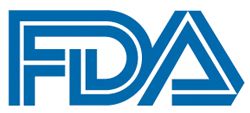- Advertise
- About OncLive
- Editorial Board
- MJH Life Sciences brands
- Contact Us
- Privacy
- Terms & Conditions
- Do Not Sell My Information
2 Clarke Drive
Suite 100
Cranbury, NJ 08512
© 2025 MJH Life Sciences™ and OncLive - Clinical Oncology News, Cancer Expert Insights. All rights reserved.
FDA Approves Pembrolizumab for PD-L1+ Gastric Cancer
The FDA has approved pembrolizumab for the treatment of patients with PD-L1–positive recurrent or advanced gastric or gastroesophageal junction adenocarcinoma who have received 2 or more lines of chemotherapy, including fluoropyrimidine- and platinum-containing chemotherapy, and, if appropriate, HER2/neu-targeted therapy.

The FDA has approved pembrolizumab (Keytruda) for the treatment of patients with PD-L1—positive recurrent or advanced gastric or gastroesophageal junction (GEJ) adenocarcinoma who have received 2 or more lines of chemotherapy, including fluoropyrimidine- and platinum-containing chemotherapy, and, if appropriate, HER2/neu-targeted therapy.
The approval is based on findings from the phase II KEYNOTE-059 study. In the study, 143 of 259 patients had PD—L1-positive tumors (combined positive score ≥1) and microsatellite stable tumor status or undetermined microsatellite instability or mismatch repair status. The overall response rate (ORR) in these patients was 13.3% (95% CI, 8.2-20.0), including a complete response (CR) rate of 1.4% and a partial response (PR) rate of 11.9%.1
The duration of response among the 19 responding patients ranged from 2.8+ to 19.4+ months. Responses were 6 months or longer in 11 (58%) patients and 12 months or longer in 5 (26%) patients.
“Historically, advanced gastric cancer has been particularly challenging to treat, and new treatment options are needed for these patients,” lead KEYNOTE-059 investigator Charles S. Fuchs, MD, Yale Cancer Center, said in a statement. “The results observed in the diverse population of heavily pretreated advanced gastric or GEJ patients from the KEYNOTE-059 clinical trial demonstrate that pembrolizumab in the third-line setting has the potential to shift how we care for certain patients facing this difficult-to-treat disease.”
Full results from the KEYNOTE-059 trial were presented at the 2017 ASCO Annual Meeting.2 All 259 patients received pembrolizumab at a flat 200 mg dose every 3 weeks. The median age of patients was 62 years and 76.4% were male. The ECOG performance status for patients was primarily 0 (41.3%) and 1 (58.3%). Overall, 51.7% of patients had received 2 prior lines of therapy, and 29% and 19.3% had received 3 or ≥4 prior lines of therapy, respectively.
Across the entire study population, the ORR with pembrolizumab was 11.6%. In those who specifically received 2 prior lines of therapy, the ORR was 16.4%. The median progression-free survival (PFS) was 2.0 months and the median overall survival (OS) was 5.6 months, with a 12-month OS rate of 23.4%.
After a median follow-up of 5.8 months, 2.3% of patients had a CR and 9.3% had a PR. When including stable disease, the disease control rate was 27%. The median duration of response was 8.4 months.
Those treated in the third-line setting had a 3% CR rate and a 13.4% partial response rate. In the fourth-line and beyond, the ORR dropped to 6.4%, with a 1.6% CR rate. For those with PD-L1—positive tumors in the third-line setting (n = 75), the ORR was 22.7% with a 2.7% CR rate. In patients with PD-L1–negative tumors treated with third-line pembrolizumab (n = 58), the ORR was 8.6% with a 3.4% CR rate.
Among 7 patients with microsatellite instability-high (MSI-H) tumors, the ORR with pembrolizumab was 57.1% and the CR rate was 14.3%. The disease control rate was 71.4%. In those with non—MSI-H tumors (n = 167), the ORR was 9% and the CR rate was 2.4%. The disease control rate was 22.2%.
The most frequently occurring treatment-related adverse events (AEs) of all grades were fatigue (18.9%), pruritus (8.9%), rash (8.5%), hypothyroidism (7.7%), decreased appetite (7.3%), anemia (6.9%), nausea (6.9%), diarrhea (6.6%), and arthralgia (5.8%). There were 2 treatment-related grade 5 AEs (acute kidney injury and pleural effusion).
The accelerated approval of pembrolizumab for this indication is contingent on the results of a confirmatory trial.
Pembrolizumab is approved for several indications, including as a treatment for patients with lung cancer, melanoma, Hodgkin lymphoma, and other types of cancer. In mid-May, the FDA granted an accelerated approval to pembrolizumab as a treatment for patients without other options with unresectable or metastatic, MSI-H or mismatch repair deficient (dMMR) solid tumors. This was in addition to those with MSI-H or dMMR colorectal cancer following progression on a fluoropyrimidine, oxaliplatin, and irinotecan.
References
- FDA Approves Merck’s KEYTRUDA® (pembrolizumab) for Previously Treated Patients with Recurrent Locally Advanced or Metastatic Gastric or Gastroesophageal Junction Cancer Whose Tumors Express PD-L1 (CPS Greater Than or Equal to 1). Merck. http://bit.ly/2wberGs. Accessed September 22, 2017.
- Fuchs CS, Doi T, Jang RW-J, et al. KEYNOTE-059 cohort 1: Efficacy and safety of pembrolizumab (pembro) monotherapy in patients with previously treated advanced gastric cancer. J Clin Oncol. 2017;35 (suppl; abstr 4003).
Related Content:




